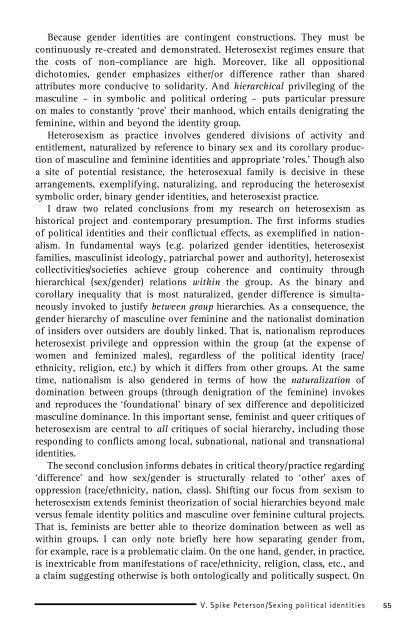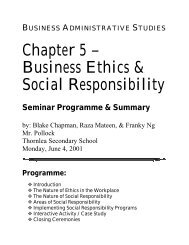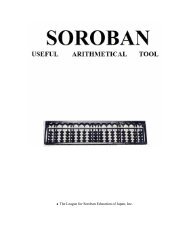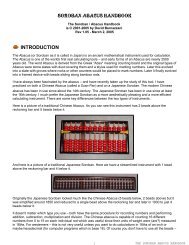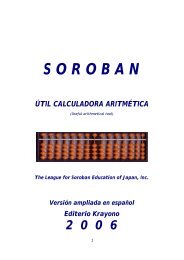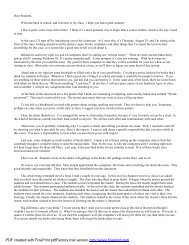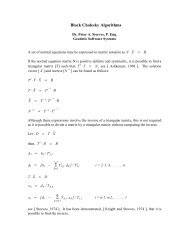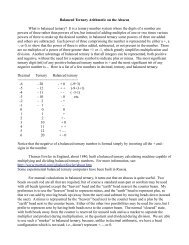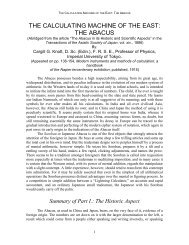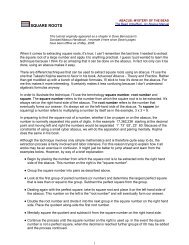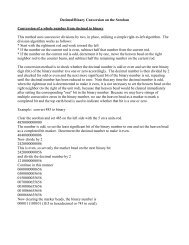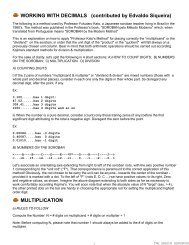Sexing Political Identities-Nationalism as Heterosexism.pdf
Sexing Political Identities-Nationalism as Heterosexism.pdf
Sexing Political Identities-Nationalism as Heterosexism.pdf
Create successful ePaper yourself
Turn your PDF publications into a flip-book with our unique Google optimized e-Paper software.
Because gender identities are contingent constructions. They must be<br />
continuously re-created and demonstrated. Heterosexist regimes ensure that<br />
the costs of non-compliance are high. Moreover, like all oppositional<br />
dichotomies, gender emph<strong>as</strong>izes either/or difference rather than shared<br />
attributes more conducive to solidarity. And hierarchical privileging of the<br />
m<strong>as</strong>culine – in symbolic and political ordering – puts particular pressure<br />
on males to constantly ‘prove’ their manhood, which entails denigrating the<br />
feminine, within and beyond the identity group.<br />
<strong>Heterosexism</strong> <strong>as</strong> practice involves gendered divisions of activity and<br />
entitlement, naturalized by reference to binary sex and its corollary production<br />
of m<strong>as</strong>culine and feminine identities and appropriate ‘roles.’ Though also<br />
a site of potential resistance, the heterosexual family is decisive in these<br />
arrangements, exemplifying, naturalizing, and reproducing the heterosexist<br />
symbolic order, binary gender identities, and heterosexist practice.<br />
I draw two related conclusions from my research on heterosexism <strong>as</strong><br />
historical project and contemporary presumption. The rst informs studies<br />
of political identities and their conictual effects, <strong>as</strong> exemplied in nationalism.<br />
In fundamental ways (e.g. polarized gender identities, heterosexist<br />
families, m<strong>as</strong>culinist ideology, patriarchal power and authority), heterosexist<br />
collectivities/societies achieve group coherence and continuity through<br />
hierarchical (sex/gender) relations within the group. As the binary and<br />
corollary inequality that is most naturalized, gender difference is simultaneously<br />
invoked to justify between group hierarchies. As a consequence, the<br />
gender hierarchy of m<strong>as</strong>culine over feminine and the nationalist domination<br />
of insiders over outsiders are doubly linked. That is, nationalism reproduces<br />
heterosexist privilege and oppression within the group (at the expense of<br />
women and feminized males), regardless of the political identity (race/<br />
ethnicity, religion, etc.) by which it differs from other groups. At the same<br />
time, nationalism is also gendered in terms of how the naturalization of<br />
domination between groups (through denigration of the feminine) invokes<br />
and reproduces the ‘foundational’ binary of sex difference and depoliticized<br />
m<strong>as</strong>culine dominance. In this important sense, feminist and queer critiques of<br />
heterosexism are central to all critiques of social hierarchy, including those<br />
responding to conicts among local, subnational, national and transnational<br />
identities.<br />
The second conclusion informs debates in critical theory/practice regarding<br />
‘difference’ and how sex/gender is structurally related to ‘other’ axes of<br />
oppression (race/ethnicity, nation, cl<strong>as</strong>s). Shifting our focus from sexism to<br />
heterosexism extends feminist theorization of social hierarchies beyond male<br />
versus female identity politics and m<strong>as</strong>culine over feminine cultural projects.<br />
That is, feminists are better able to theorize domination between <strong>as</strong> well <strong>as</strong><br />
within groups. I can only note briey here how separating gender from,<br />
for example, race is a problematic claim. On the one hand, gender, in practice,<br />
is inextricable from manifestations of race/ethnicity, religion, cl<strong>as</strong>s, etc., and<br />
a claim suggesting otherwise is both ontologically and politically suspect. On<br />
V. Spike Peterson/<strong>Sexing</strong> political identities 55


